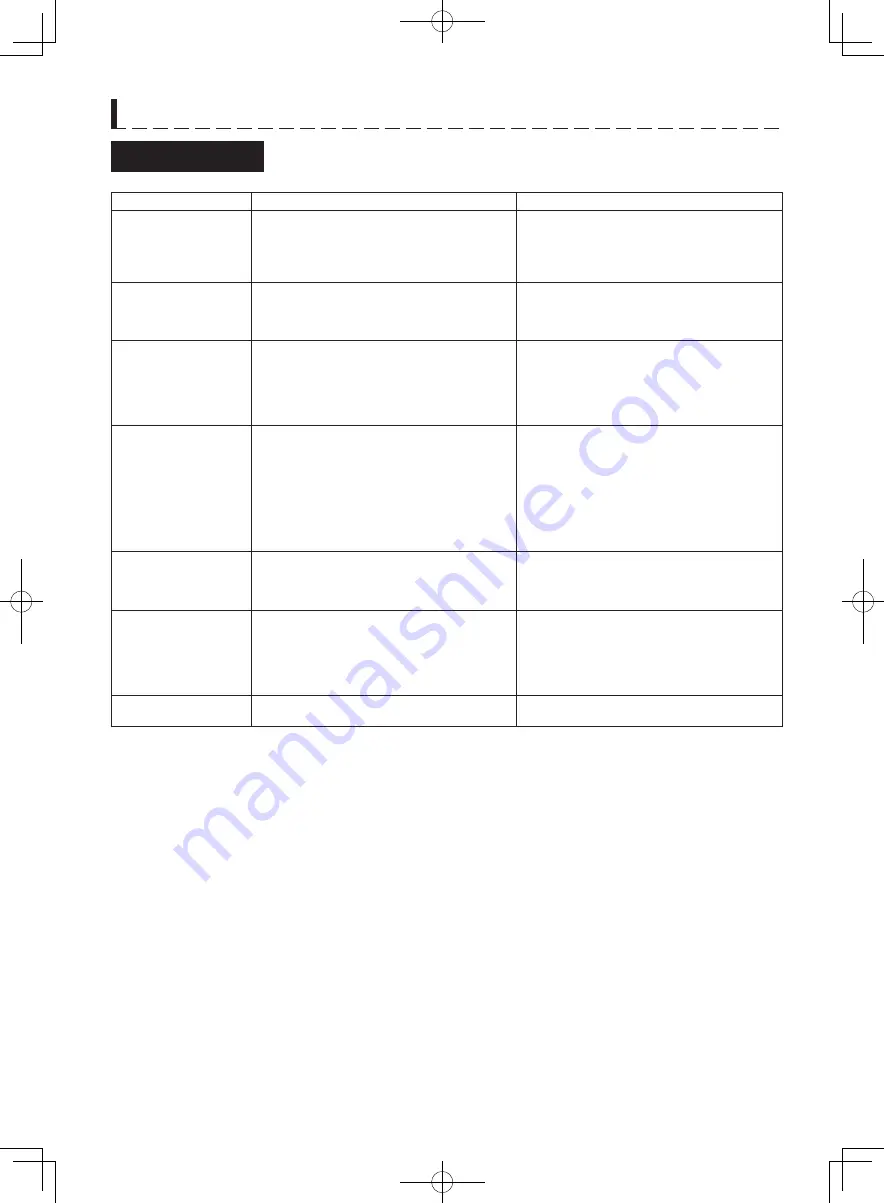
R-D219G
E-15
E-16
COOKING GUIDES
About Utensils and Coverings
The chart below will help you decide what utensils and coverings should be used in each mode.
Heat resistant
glass containers,
ceramics and
china ware
Plastic and silicon containers,
and wraps with heat resistance
of 140°C or more
● However, breakage can occur on rapid heating or cooling.
● Vessels with colored designs or cracks, or with gold or silver
inlay patterns cannot be used, as they may be damaged or
emit sparks.
●
However, cuisine with high sugar or oil content cannot
be used, as they deform or melt at high temperatures.
●
When using sealed containers, please remove the lids.
Overheating may lead to smoke, fire or rapid boiling
(in the case of soups).
● Please use those foods designated for use with electric
oven heating.
● Remove the lids before heating.
Can be used
Metallic containers
such as aluminum,
stainless steel and
enameled ware,
and aluminum foil
Lacquer ware,
bamboo and
paper products
Plastic containers
with less than 140°C
heat resistance
(Styrofoam trays etc.)
Glass containers
lacking heat
resistance
● These containers will peel, crack or burn.
● Heat-resistant baking sheets with instructions for use on
the packaging can be used.
● Styrene, polyethylene, melamine (for infant utensils etc.),
phenol and urea resin will alter with radio waves.
● Reinforced glass, cut glass and crystal glass also cannot
be used.
● Sparks will be emitted, damaging the product.
When wishing to use containers other than those above, please consult with the retail
source or manufacturer of the container.
Please note
Cannot be used
al
Wraps
COOKING GUIDES
Special Notes
DO
DON'T
Eggs, fruits, nuts,
seeds, vegetables,
sausages and oysters
* Puncture egg yolks and whites and oysters
before cooking to prevent “explosion”.
* Pierce skins of potatoes, apples, squash,
hot dogs, sausages and oysters so that
steam escapes.
* Cook eggs in shells. This prevents “explosion”,
which may damage the oven or injure yourself.
* Cook hard / soft boiled eggs.
* Overcook oysters.
* Dry nuts or seeds in shells.
Popcorn
* Use specially bagged popcorn for the
microwave oven.
* Listen while popping corn for the popping
to slow to 1-2 seconds.
* Pop popcorn in regular brown bags or
glass bowls.
* Exceed maximum time on popcorn
package.
Baby food
* Transfer baby food to small dish and heat
carefully, stirring often. Check for suitable
temperature to prevent burns.
* Remove the screw cap and teat before
warming baby bottles. After warming shake
thoroughly. Check for suitable temperature.
* Heat disposable bottles.
* Overheat baby bottles.
* Heat bottles with nipples on.
* Heat baby food in original jars.
General
* Food with filling should be cut after heating,
to release steam and avoid burns.
* Use a deep bowl when cooking liquids or
cereals to prevent boiling over.
*
When cooking small amounts of finely cut roots
and the like, always soak them in an adequate
amount of water. Cooking small amounts of
less than 100g can cause accidents due to
sparks, burnt food, and combustion.
* Heat or cook in closed glass jars or
airtight containers.
* Deep fat fry.
* Heat or dry wood, herbs, wet papers,
clothes or flowers.
* Operate the oven without a load (i.e. an
absorbing material such as food or water)
in the oven cavity.
Liquids
(Beverages)
* For boiling or cooking liquids see
IMPORTANT SAFETY INSTRUCTIONS
on page E-1-2 to prevent explosion and
delayed eruptive boiling.
* Heat for longer than recommended time.
Canned foods
”Boil-in-the-bag” food
* Put bagged and canned food in a
container before cooking. Cooking food in
aluminum and other metal containers can
cause damage due to sparks.
* Heat or cook food while in cans or bags.
Sausage rolls, Pies,
Christmas pudding
* Cook for the recommended time. (These
foods have high sugar and / or fat contents)
* Overcook as they may catch fire.










































